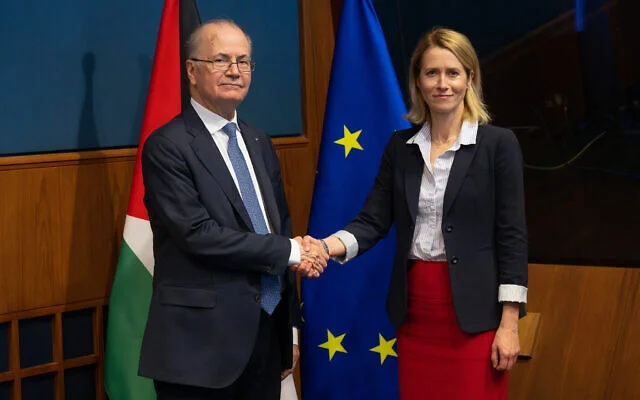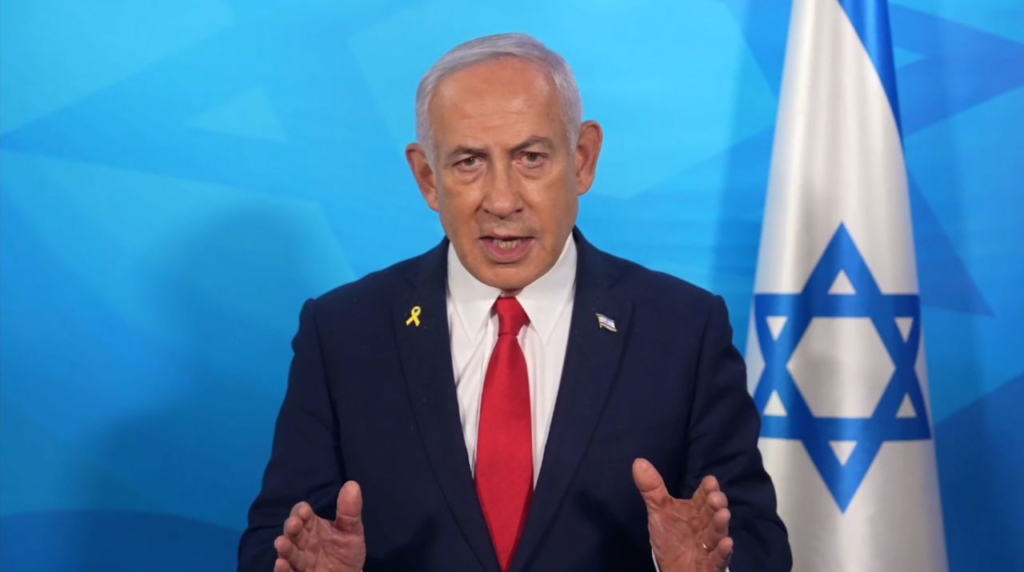EU Declares Israel’s Actions Exceed Self-Defense, Sparking Diplomatic Tensions
The European Union’s top diplomat, Kaja Kallas, has publicly criticized Israel, stating that its ongoing military operations in Gaza “go beyond proportionate self-defense,” marking a significant escalation in the EU’s rhetoric amid the worsening humanitarian crisis in the region.

The statement, made following a meeting of EU foreign ministers in Luxembourg on April 14, reflects growing unease among European leaders over Israel’s actions, which have drawn international condemnation.
Israel’s Recent Actions in Gaza
Israel’s military campaign in Gaza intensified following the collapse of a fragile ceasefire agreement in January 2025. On March 18, the Israeli Defense Forces (IDF) launched a renewed assault, targeting what they described as Hamas command centers, including a strike on Al-Ahli Hospital in Gaza City.
The attack, which forced the hospital’s evacuation, was justified by Israel as targeting a Hamas “command and control center.” However, the strike drew sharp criticism after reports emerged of civilian casualties and inconsistencies in Israel’s account of the operation.

Further escalating tensions, Israel announced the completion of the “Morag Corridor,” a security barrier cutting off the southern city of Rafah from the rest of Gaza, prompting accusations of isolating Palestinian communities.
The blockade of Gaza, now in its second month, has severely restricted humanitarian aid, with UN experts warning of a “massacre of Palestinians” due to starvation and lack of basic supplies.
The EU’s statement also follows reports of Israel’s detention of a Palestinian Red Crescent medic, Assad al-Nsasrah, and the killing of 15 aid workers in Rafah, whose bodies were found in a mass grave.
These incidents have fueled allegations of disproportionate force and violations of international humanitarian law.
EU’s Role and the Weight of Its Statement
As a major global player with significant economic and diplomatic influence, the EU’s position carries substantial weight in international affairs.
The bloc is a key provider of humanitarian aid to Palestinians, announcing a $1.8 billion package to stabilize the West Bank and Gaza through 2027.
Kallas emphasized that aid must reach those in need without being politicized, underscoring the EU’s commitment to addressing the humanitarian crisis.
The EU’s criticism signals a potential shift in its approach to Israel, a long-standing partner. Some member states, notably France, Spain, and Ireland, have pushed for a review of the EU-Israel Association Agreement, citing Israel’s alleged violations of human rights clauses.
France’s recent move to recognize Palestinian statehood within months further highlights growing European frustration with Israel’s policies.
“This is a wake-up call for Israel,” said Dr. Maria Alvarez, a Brussels-based expert on EU-Middle East relations. “The EU is signaling it may not tolerate unchecked military actions, especially as public opinion in Europe increasingly opposes Israel’s approach in Gaza.”
Israel’s Reaction
Israel has yet to issue an official response to Kallas’ remarks, but past reactions suggest a defensive posture. In September 2024, Israeli Foreign Minister Israel Katz accused outgoing EU foreign policy chief Josep Borrell of undermining Israel’s right to self-defense by equating it with Hezbollah, a designated terrorist organization.

Israeli officials have consistently maintained that their operations target Hamas and other militant groups, not civilians, and are necessary to ensure national security.
“Israel will likely frame the EU’s criticism as biased and dismissive of the threats it faces,” said Yossi Mekelberg, a Middle East analyst at Chatham House. “But ignoring the EU could strain relations with a key economic and diplomatic partner.”
EU-Israel Relations
The EU and Israel have a robust history of collaboration, particularly in trade, technology, and research.
The EU-Israel Association Agreement, in place since 2000, facilitates tariff-free trade and has made the EU Israel’s largest trading partner, with bilateral trade valued at over €46 billion annually.
Israel’s participation in EU programs like Horizon 2020 and Horizon Europe has fostered scientific and technological exchanges, including joint projects in renewable energy and cybersecurity.
Read this:
A notable example of cooperation is the Great Seas Interconnector, a €1.94 billion EU-backed project to link the power grids of Greece, Cyprus, and Israel.
Despite Turkish objections, the EU has invested €800 million in the initiative, underscoring its strategic interest in regional energy connectivity.
However, political tensions have periodically strained ties. The EU has criticized Israel’s settlement expansion in the West Bank and its treatment of Palestinians, while Israel has accused the EU of applying double standards and failing to address anti-Semitism within Europe.
The recent invitation of far-right European leaders to an Israeli government-hosted anti-Semitism conference in Jerusalem further complicated relations, as mainstream Jewish leaders boycotted the event over concerns about the guests’ ties to extremist ideologies.
Expert Perspectives
Analysts warn that the EU’s statement could herald tougher measures, such as targeted sanctions or restrictions on arms exports.
The Netherlands recently revoked a general export authorization for weapons to Israel, requiring individual permits to comply with European law.
“The EU is walking a tightrope,” said Dr. Hugh Lovatt of the European Council on Foreign Relations. “It wants to uphold international law and humanitarian principles without alienating Israel, a key partner. But the longer the Gaza crisis persists, the harder it will be to maintain that balance.”
Others argue the EU’s response is too little, too late. “The EU’s silence for months while Gaza burned has eroded its credibility,” said Nour Odeh, a Palestinian political analyst. “This statement is a step, but without concrete actions—like suspending the Association Agreement—it risks being seen as symbolic.”
The EU’s declaration has intensified scrutiny on Israel’s military strategy and its diplomatic relations with Europe. As the humanitarian toll in Gaza mounts, pressure is growing for the EU to translate its words into action, whether through sanctions, diplomatic démarches, or increased support for Palestinian statehood.
For Israel, the challenge lies in balancing its security imperatives with the need to maintain ties with a critical ally.
As Alvarez noted, “The EU’s influence lies in its economic and moral authority. If it leverages that effectively, it could push Israel toward de-escalation. But that requires unity among member states, which has always been the EU’s Achilles’ heel.”


![An ambulance is parked at the site of the Lapu Lapu event in Vancouver [Jennifer Gauthier/Reuters]](https://worldinfo.news/wp-content/uploads/2025/04/Car-Crashes-into-Vancouver-Festival-Kills-Several-554x346.webp) Car Crashes into Vancouver Festival Kills Several
Car Crashes into Vancouver Festival Kills Several  Trump Meets Zelensky, Questions Putin’s Peace Intentions
Trump Meets Zelensky, Questions Putin’s Peace Intentions  Kashmir Tensions Rise After Attack and Border Clashes
Kashmir Tensions Rise After Attack and Border Clashes  Jhelum Water Release Triggers Pakistan
Jhelum Water Release Triggers Pakistan  Barcelona Clinches Copa del Rey Over Real Madrid
Barcelona Clinches Copa del Rey Over Real Madrid  UK Social Media Giants Face £60000 Fines
UK Social Media Giants Face £60000 Fines